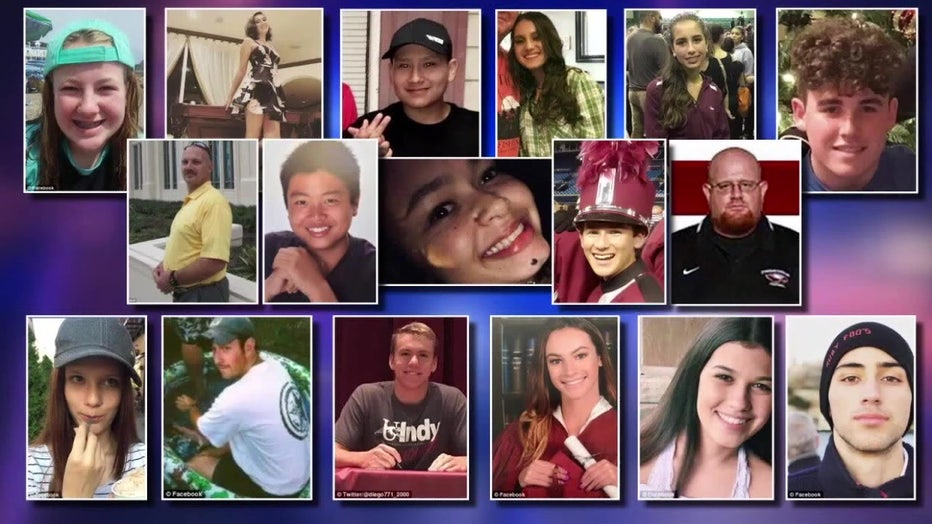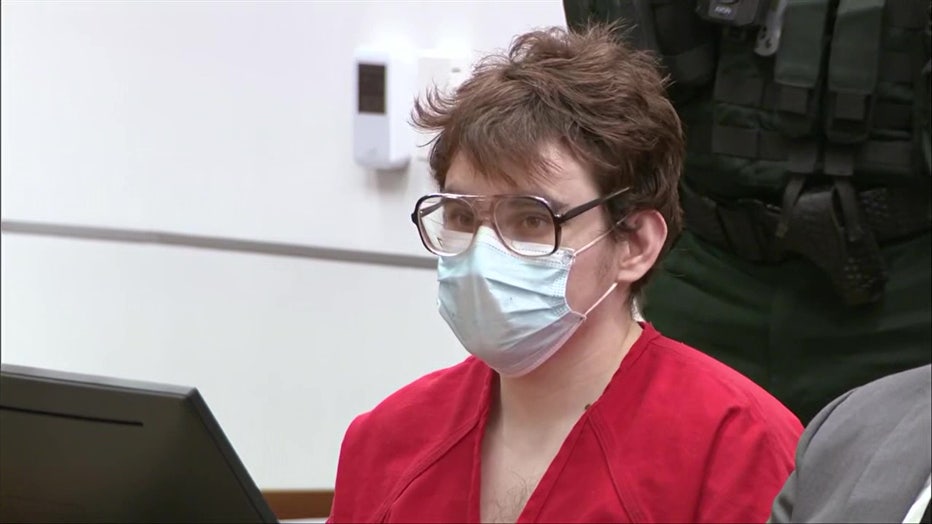Death penalty change signed into law months after Parkland shooter escapes death sentence
TAMPA, Fla. - Months after a jury failed to reach a unanimous verdict in the Parkland shooter’s death penalty case, Governor Ron DeSantis signed a law that would change the requirements in Florida.
DeSantis signed SB 450 on Tuesday. The new law now only requires eight out of 12 jurors to vote in favor of a death sentence.
"Now in the state of Florida, we have the lowest threshold to give somebody the ultimate sentence," Tampa area attorney Anthony Rickman said.
RELATED: DeSantis signs major death penalty change
Rickman says this law makes Florida an outlier.
The law has garnered strong support, but has also drawn opposition over concerns its more lenient requirements to hand down what they call the most serious punishment.
One other who lost her daughter in the shooting at Marjory Stoneman Douglas High School in Parkland applauded the law.
"Somebody killing 17 people? What else do we have the death penalty for if it’s not for the killing of 17 people," Lori Alhadeff said.
Alhadeff ‘s daughter, Alyssa, was one of 17 people killed in the shooting.

Critics raise concerns over potentially executing someone who is wrongfully convicted.
"It opens the door to cases where there’s some doubt," Richard Dieter, the executive director of the Death Penalty Information Center, said. "Certainly some doubt about the sentence and maybe even doubt about the guilt."
Dieter calls the law a step backwards.
Under the new law, a judge still has the ultimate discretion over whether to uphold the jury’s recommendation. However, if a judge chooses not to uphold the recommendation, they must explain their decision in writing.
"And I believe that does give the court the ability, the judge who's hearing the facts, this case can look at a jury and say, 'hey, it's a close call,'" Rickman said. "It's 8 to 4. Based on the facts that this court considers. Ultimately, the sentencing is up to the judge."
The death penalty bill was filed on the heels of Parkland shooter Nikolas Cruz’s sentence to life in prison. He avoided the death penalty by a narrow margin.
"It’s traumatizing to hear that the shooter is going to get life in prison, when I have to go and visit my daughter at the cemetery to talk to my daughter," Alhadeff said.
Alhadeff says sitting through Cruz’s trial and hearing the sentencing destroyed her family.

"We never imagined or expected somebody killing 17 people and shooting 17 people, that they would not have gotten the death penalty," Alhadeff said.
Alhadeff says one person should not be able to dictate a sentence.
"There are some cases in which the jury feels the person is guilty, but they have some lingering doubt about the guilt of the person, so when to comes to sentencing, ending the person’s life, they vote partially against the death penalty, so it’s a mixed verdict," Dieter said.
Dieter says there should be as most certainty as possible when making this decision.
"A person’s life is at stake," Dieter said. "That’s at least as important as whether they’re guilty or innocent."
Moving forward, Rickman says this new law will likely lead to more death sentences. He says he also believes this will change the strategy prosecutors and defense teams use in a case.
"We're going to have the prosecution being presenting as much evidence they possibly can shed, putting this defendant as badly as they possibly can, showing those aggravating circumstances the way they always have," Rickman said. "It makes it now harder for the defense because the defense and the defense in this case is not, you know, just one."
The law does not change the requirement for finding someone guilty. It only applies to the sentencing phase of a death penalty case.

